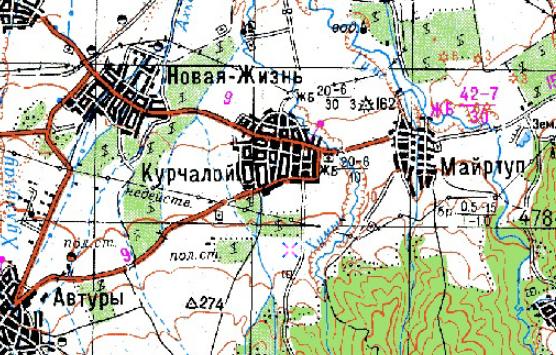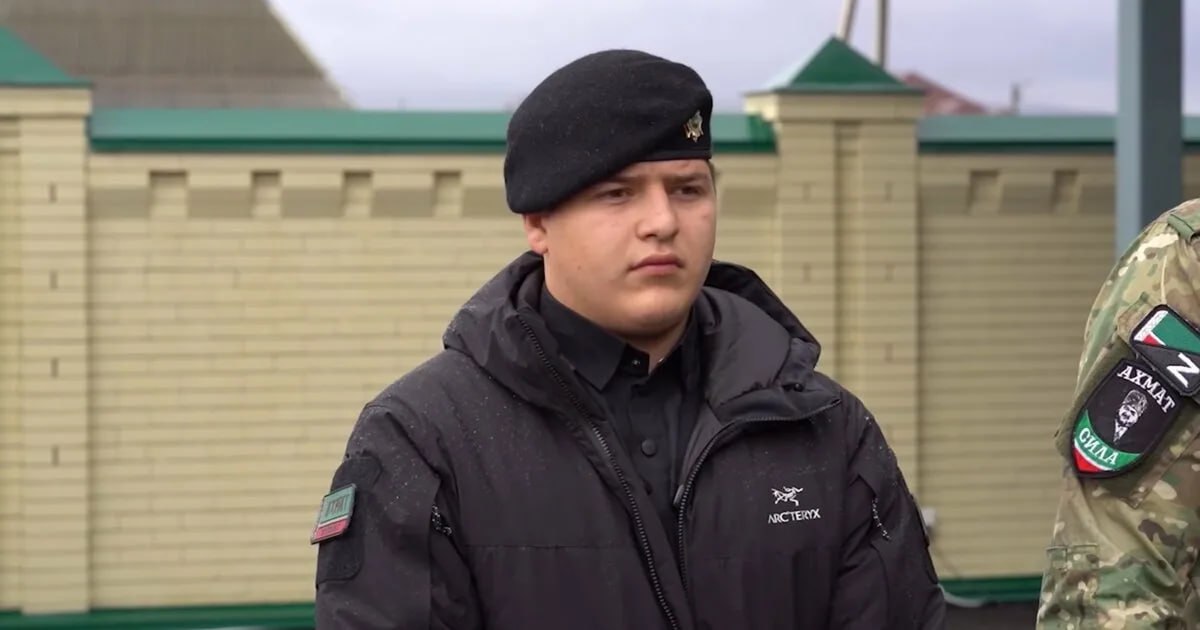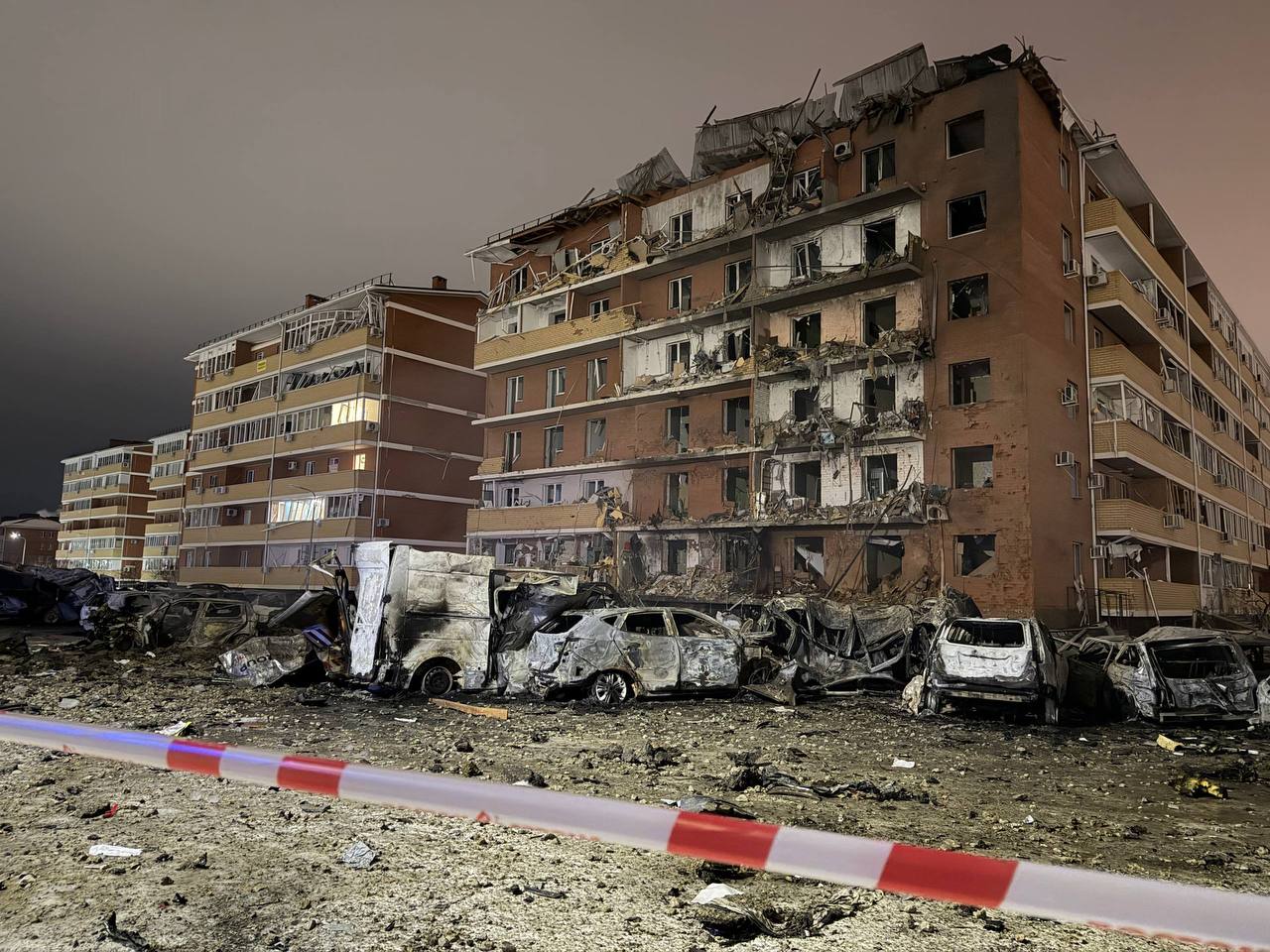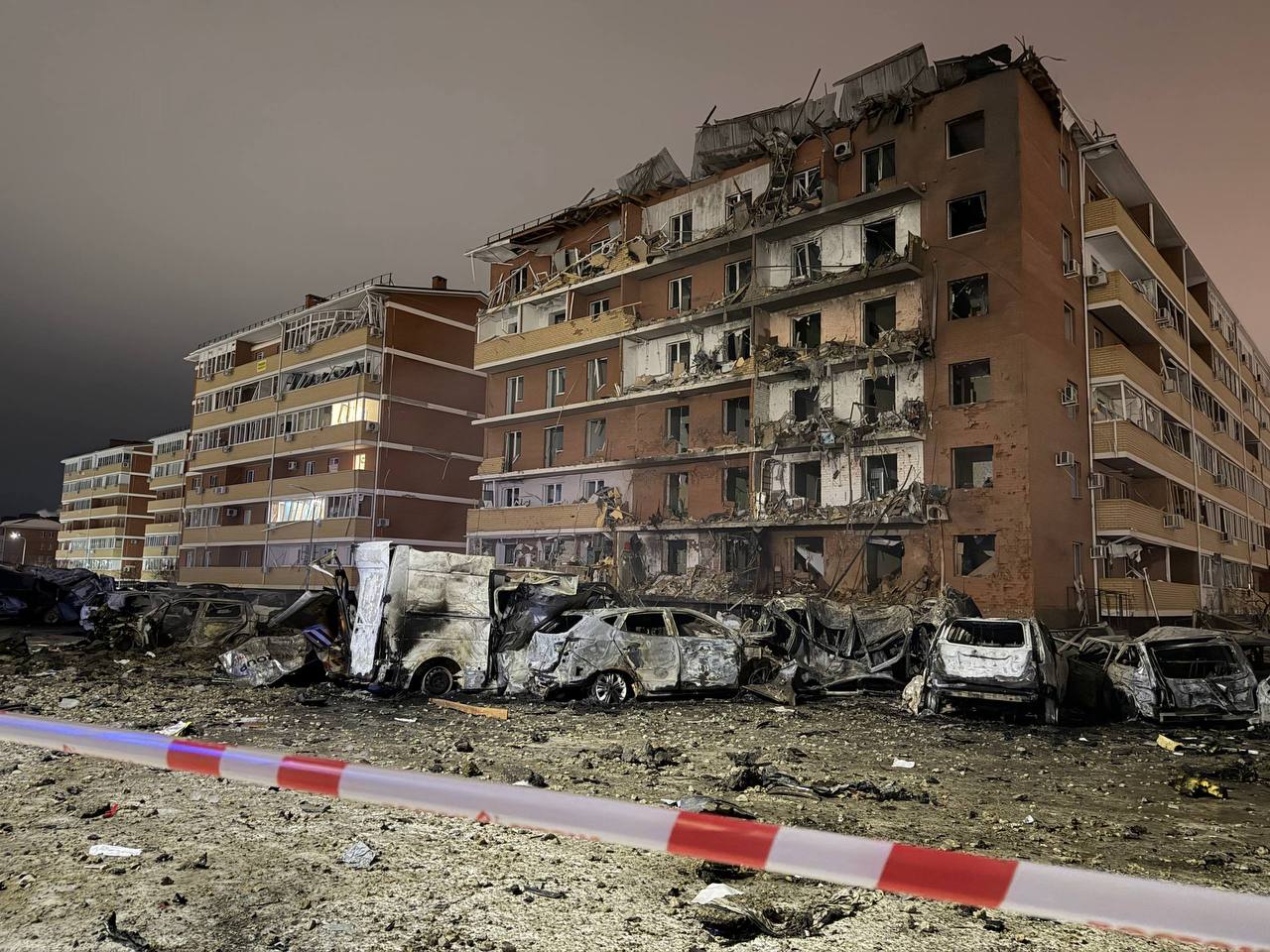The health of Adam Kadyrov, the son of Chechen leader Adam Kadyrov, who was injured in a traffic accident in Grozny, is improving, according to the Agency, citing sources close to the Russian presidential administration and the Chechen authorities.

December 19, 2001
***
During the “cleansing” in the village of Gekhi, the Russian military captured Khizir Masudovich Musaev, born in 1966. This happened not far from his house (57 Zarechnaya St.). Having decided to visit his mother, he went out into the street and was almost immediately stopped to check his documents. Despite having a passport, the military decided to detain him and lifted him onto one of their armored personnel carriers. Everything happened in front of many witnesses. Neighbors rushed to his rescue. Soon his sisters also arrived. They asked to explain why the person was being detained, what he was suspected of, if, of course, he was suspected of anything at all. The military refused to answer. And then, trying to prevent the kidnapping of Khizir Musayev, his sisters tried to climb onto the armored vehicle. They were thrown to the ground by force, after which the armored personnel carriers with the captured man left the village. The kidnapped man was married and had two children. According to the testimony of relatives, during the second war he was not a member of the VF of the ChRI and did not participate in battles. Two weeks later he managed to return to his home. Relatives refused to provide details and the circumstances of his release.
Mairbek Ruslanovich Khamzaev, born in 1981, living in the village at the address: Sovetskaya St., 25, was also detained. Shortly before this, he took his temporary identity card to the passport and visa service of the Urus Department of Internal Affairs, Martanovsky District. I asked to extend it. It was already ready when the young man was detained and taken to the VOVD. The reason is that his ID was allegedly fake. Mairbek Khamzaev was interrogated and released. He was given a summons with the requirement to return back on December 18, but already on December 17, Gekhi was flooded with troops, and a “cleansing” began there. The operation continued the next day and on December 19. The young man tried to go to the regional center, but they did not let him through the checkpoint. Then Mairbek’s relatives asked the military men blockading the village to contact the Urus-Martan District VOVD and explain that it was their fault that he did not end up in the regional center. The military willingly complied with this request.
At approximately 16.10, police officers burst into Mairbek Khamzaev’s house and conducted an unauthorized search. At the same time, the requirements of the criminal procedural legislation of the Russian Federation concerning the grounds and procedure for conducting such events were grossly violated. The police officers, for example, did not introduce themselves. During the search, nothing illegal was found. However, Mairbek Khamzaev was detained. His relatives were not told what he was suspected of and where he would be taken. Only the next day the judge of the Urus-Martan District Court reassured them, saying that the detainee should be released in five days. Relatives and friends of Mairbek Khamzaev asked in bewilderment: why should someone else, and not the perpetrators themselves, be held responsible for the certificate issued by the PVS of the Urus-Martan District Department of Internal Affairs? The Memorial Human Rights Center has no information about the further fate of this person.
***
In the village of Kurchaloy, militants attacked the POM building, the commandant's office and the VOVD. Return fire was opened on the village from the territory of the commandant's office. As a result, several houses were destroyed, two houses burned down completely. School No. 1 was also damaged (all doors and windows were broken). Two village residents were injured.
Russian news agencies widely covered the events in Kurchaloy. Referring to the words of the “director of the state radio of Chechnya” Akhmed Dovletukaev, the Strana.Ki correspondent, in particular, reported that a “group of bandits” dealt with local resident Rovzan Duraeva for her anti-war speech at one of the village gatherings. Then they allegedly broke into the house of the “spiritual leader of Chechnya Nasukha-Khadzhi Akhmatov,” the rector of an Islamic university located in the regional center, who criticizes “Wahhabism and extremism in Islam,” but he was not at home. Then the militants, according to Strana.Ki, burned his house. The house of the deputy head of the Kurchaloevsky District Department of Internal Affairs, who was absent in the village, was allegedly burned down. Participants of the VF ChRI left the village in two Niva and UAZ cars.
Village residents refuted much of what Russian journalists wrote. Thus, Rovzan Duraeva could not be killed by militants “for her anti-war speech.” She was the second wife of a man whose sons fought against Russian troops. Kurchaloevites explain her murder by domestic reasons.
The house of Nasukh-Khadzhi Akhmatov was not burned either. Although, perhaps, that night members of the WF of ChRI came to him.
The house of the deputy head of the local police department, Mairbek Khizriev, actually burned down, but not as a result of deliberate arson, but during a shootout. Khizriev was inside the house and opened fire on the attackers with a machine gun. After a shot was fired through the window from a Bumblebee flamethrower, the house caught fire. None of the residents were injured. The owner also survived. Later he was killed in a bathhouse in Khasavyurt.
On December 20, a “cleansing” began in the village, which lasted two days. On December 21, several people were detained in Kurchaloi. It is unknown to Memorial Human Rights Center who they are and whether they were released later.
***
Early in the morning, an engineering brigade, checking one section of the Staropromyslovskoe highway in Grozny for the presence of mines, was fired upon by an unknown person. In response, the military broke into the houses closest to the highway. By threatening to shoot and beat them, they tried to force their residents to confess to the attack.
They detained Rizavdi Abbasovich Akhmadov, born in 1981, an employee of the commandant company. When the military broke into the house, he was resting after duty. Together with him in the room there was a five-year-old child of a Russian neighbor. She ran to the noise and witnessed what was happening. The military brutally beat Rizavdi Akhmadov. Her pleas for mercy were not responded to. And after the beating was over, they took him away in an unknown direction.
Relatives began a search and found the abducted man in the temporary detention center of the Leninsky district of Grozny. Petitions and requests from the commander of the commandant's company to release his subordinate did not help. Then the relatives hired a lawyer. According to those who saw Rizavdi Akhmadov in the temporary detention center, they learned that he was subjected to severe beatings there too. Nothing is known about the further fate of Akhmadov at the Memorial Human Rights Center.
***
At night, after the curfew began on the Staropromyslovskoe highway in Grozny between the Sovetskaya and Shkola stops, the Russian military shot two civilians. One of those killed is 30-year-old Khasan Vakhaev (or Vakhiev) from the town of Ivanovo, the other is a resident of the village of Katayama.
According to the testimony of local residents, young men went on a bus to buy alcohol and came across military personnel patrolling the area. They opened fire on the bus. Khasan Vakhaev died right there. A large number of bullets were fired at him, because of which, as eyewitnesses said, his head turned into a bloody mess. His comrade tried to escape, but was wounded, and then finished off with point-blank shots.
In the period from December 16 to 18 (the holiday marking the end of the Muslim fast), only in the town of Ivanova and the village of Katayama, which are adjacent to each other, the military killed at least five people.
From the book “People Live Here”, Usam Baysaev, Dmitry Grushkin, 2006.



